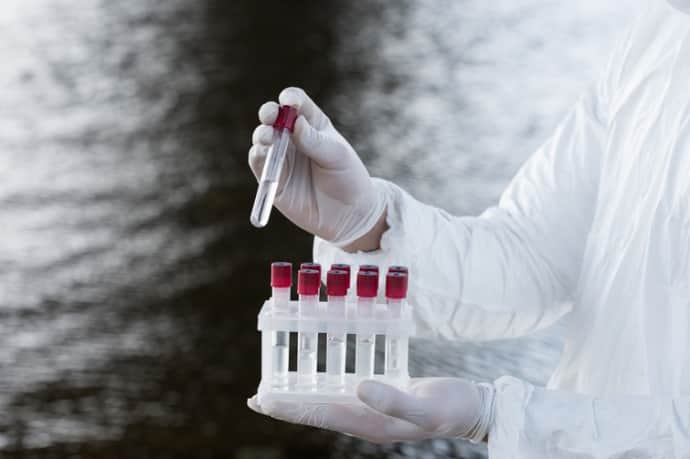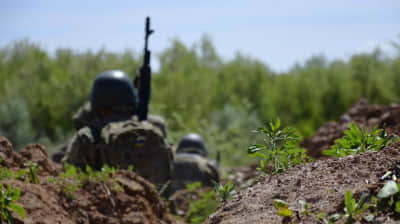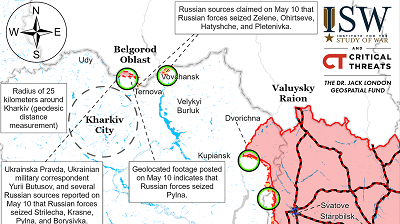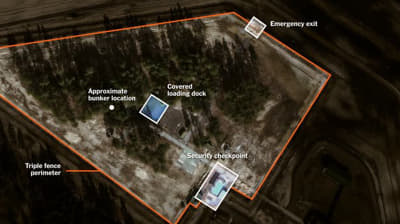Water in Ukraine's south: No cholera but E. coli detected
Experts from Ukraine’s Health Ministry have said the destruction of the Kakhovka Hydroelectric Power Plant will likely lead to water pollution.
Recent laboratory analyses paint a fuller picture on the current state of water in floodwaters near Kherson, including whether E. coli and cholera are present in the water.
Oleh Pavlenko, Head of the State Land Resources Environmental Oversight, which is part of Ukraine’s State Environmental Inspection, reported on the results of recent lab analyses during a roundtable discussion at the Military Media Center.
Pavlenko said that fuels, lubricants, and poisonous chemicals have ended up in the water.

"We are monitoring the southern district, taking daily samples of water and analysing them. It is not an extraordinary level of pollution, but there have been several cases when we found cholera and E. coli bacteria.
The Sanitary and Epidemiological Service is also analysing the state of the water and monitoring the sanitary and epidemiological situation. Many settlements have been flooded, and this includes outbuildings and sewers. We are studying the water’s chemical composition, while they look at its biological properties," Oleh Pavlenko said.
Meanwhile, Ukraine’s State Environmental Inspection reported that the concentration of pollutants in water samples did not exceed the norm.
Ihor Kuzin, Deputy Health Minister and Chief State Sanitary Doctor of Ukraine said on the national newscast that no cholera bacteria were found in water samples from Mykolaiv, Kherson, and Odesa oblasts.
"We have ensured extensive monitoring of drinking water supplies. I would like to say that we have not detected cholera in sea or river water.
Still, we’ve detected rotavirus in Odesa Oblast for several days in a row; it’s an acute intestinal infection, a viral infection. A person might get an acute intestinal infection while swimming or otherwise perusing various bodies of water, or when swallowing such water," Kuzin said.
He explained that water was being monitored at 40 locations in three oblasts.
Everyone who ends up in a hospital with acute intestinal infections or severe digestive issues is tested for cholera.
A total of 172 people have been tested in Odesa Oblast.
The Chief State Sanitary Doctor stressed several simple rules to prevent infectious diseases:
- Avoid swimming in the sea or in rivers while the water is still polluted as a result of the flooding caused by the Kakhovka HPP explosion;
- Only drink specially delivered, bottled, or purified water in flooded areas.
"We are also drawing people’s attention to the fact that it’s best to avoid buying fish for the time being, especially in unlicensed stores, because we think it is possible that due to the abundance of [dead] fish some unscrupulous people might sell it, or it might be cooked in inappropriate conditions," Kuzin added.
Background: After Russian occupation forces blew up the Kakhovka HPP, the water from the Kakhovka reservoir flooded the area below it. Several settlements, and a number of gas stations, cemeteries, and cesspools were flooded.
Experts warned local residents about the dangers of using the floodwater, and explained how to disinfect water during emergencies like the current one.
Journalists fight on their own frontline. Support Ukrainska Pravda or become our patron!







